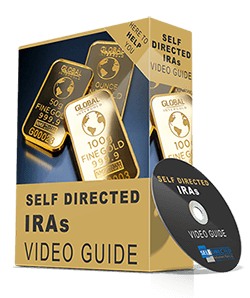A subject that is sometimes overlooked when discussing usual pre-tax contributions is “after-tax 401(k) contributions”. So, whether you are a seasoned investor or just starting in the world of retirement savings, keep reading for some valuable tips.
This post is here to explain what 401k after-tax contributions are, how they work, and their possible advantages. So, take a drink, settle down, and let’s uncover the complexities of after-tax 401(k) contributions together!
What is a 401k After-tax Contribution?
A 401(k) after-tax contribution is a means to invest for retirement by putting money into your 401(k) that has already been taxed. This works whether your 401(k) is standard or Roth. You won’t have to pay income taxes on these contributions when you withdraw them in retirement.
However, any earnings you remove will still be subject to income taxes, so keep that in mind while completing your IRS Form 1040. After-tax 401(k) contributions are frequently used by high-income individuals who want to save more for retirement. It is also a fantastic retirement savings option when your normal 401(k) contributions are exhausted.
What is the Procedure for Making After-tax 401(k) Contributions?
When you wish to contribute to your 401(k) after-tax, you can have your employer deduct the amount immediately from your paycheque. After your income taxes are deducted, your after-tax 401(k) contributions will be deposited into your primary 401(k) account.
These after-tax payments, unlike average contributions, do not contribute against your personal contribution limit. Instead, they are included in the overall limit, which provides for any employer payments.
Because these contributions are made using after-tax money, they are not tax-deductible. You may withdraw them tax-free at any moment. Just bear in mind that any earnings will be taxed as ordinary income when withdrawn, even if you retire.
What is the 401(k) After-tax Contribution Limit in 2025?
The maximum yearly contribution to your 401(k) in 2025 is $23,500. Individuals aged 60 to 63 could contribute an extra $11,250 in 2025, instead of $7,500.
Starting in 2025, the combined contribution limit for both employees and employers will be $70,000, or 100% of the employee’s salary, whichever is lower. If the employee is aged 50-59 or 64 and older and contributing to catch-up savings, the limit rises to $77,500. For those between 60 and 63, the cap increases to $81,250. Employers can play a key role in boosting their employees’ retirement savings by offering employer contributions.
Ready to take your 401(k) knowledge to the next level? Click here to dive into the ins and outs of contribution limits and supercharge your retirement fund!
What are the Benefits of After-tax 401k Contribution?
After all, is an after-tax 401k contribution a good idea? Well, after-tax 401(k) contributions may be the best match for your financial plan if you want to maximize your savings and benefit from tax-deferred growth. This is why:
- Direct Deductions From Paycheques
The option to have cash withdrawn immediately from your paycheque is one of the initial benefits of after-tax 401(k) contributions. This makes it straightforward to maintain a regular level of donation without having to bother about manually moving funds. - Earnings Exempt from Income Tax
Your contributions and investment earnings are tax-free until you remove them. It’s an excellent strategy to increase your revenue over time potentially. - Increased Contribution Maximum
After-tax 401(k) contributions, as opposed to regular pre-tax contributions, allow you to contribute more than the usual yearly maximum. This is especially useful if you want to increase your retirement savings and benefit from more tax-deferred growth. - Flexible Withdrawals
When it comes to withdrawals, after-tax 401(k) contributions provide more flexibility. You may withdraw your after-tax contributions at any time, unlike standard 401(k) plans. In addition, you may roll over your gains into a Roth IRA for tax-free withdrawals in retirement. - Portability of Plans
Another significant advantage is the portability of after-tax 401(k) contributions. If you move employment or retire, you can quickly transfer cash to another retirement plan without incurring any tax consequences. - Rollover to a Roth IRA Option
In terms of Roth IRAs, after-tax 401(k) contributions allow you to roll over your funds into a Roth IRA. This allows you tax-free withdrawals in retirement, giving you even more freedom and tax advantages. - No Income Restrictions
After-tax 401(k) contributions, unlike Roth IRA contributions, have no income limitations. This implies that you may profit regardless of your income level, making it a viable alternative for people at various stages of their careers.
Disadvantages of After-tax Contributions
Let’s chat about the not-so-glamorous side of after-tax 401(k) contributions. While they can be a great way to save for retirement, there are some drawbacks you should be aware of.
- Limited Options: After-tax contributions, unlike standard and Roth 401(k) plans, do not provide as much choice in terms of where you may invest your hard-earned money.
- Complex Rollover Process: When the time comes to transfer your after-tax 401(k) contributions to another account, things might get complicated. The paperwork and hurdles you have to jump through can make your head spin, which is not what anyone wants when attempting to plan for retirement.
- Taxable Earnings: Unlike Roth 401(k) contributions, earnings on after-tax contributions are taxed. This means that when it comes time to cash out, you’ll have to give part of that money to Uncle Sam, which might put a damper on your retirement festivities.
Clever Ways for Opting for After-tax 401k Contribution
So, while after-tax 401(k) contributions have their drawbacks, there are definitely some savvy strategies you can use to make the most of them.
- An IRA rollover without an in-plan conversion is one alternative. This can provide you with more investing possibilities as well as potentially reduced expenses.
- Another option is to do an in-plan Roth conversion. This allows you to convert your after-tax contributions into tax-free profits, which may be a game changer for your retirement funds.
- Finally, following an in-plan conversion, you can consider rolling out to IRAs. This gives you even more control over your assets and may minimize your tax burden in the long run.
How Do You Transfer 401(k) Contributions to a Roth IRA After-tax?
When you retire or move employment, you can transfer after-tax 401(k) contributions to a Roth IRA without penalty. This process, however, can only be completed after you have separated from the employer that sponsors your 401(k) plan.
The IRS requires that the rollover be in direct proportion to the amount in the 401(k) fund. Once you’ve agreed on an amount to transfer, your plan administrator can send you two cheques: one for after-tax contributions and one for pre-tax contributions.
It’s best to separate them by depositing the after-tax contribution cheque straight into a Roth IRA and rolling over the pre-tax money into a regular IRA.
To accomplish this, you must complete the 401(k) distribution paperwork and select which account receives each type of contribution. Remember that you have 60 days from the day you get the cheques to deposit them into the appropriate accounts, or they become taxable.
There’s no urgency to begin the rollover because a 401(k) plan’s portability has no time restriction. Even after leaving your employment, you can wait until you are ready to determine what to do with your 401(k) account balance.
It’s time to put your money to work for you! Click here to learn more about the tax benefits and growth opportunities that await you by effortlessly rolling over your after-tax 401(k) contributions into a Roth IRA.
What are Other Rollover Alternatives?
If you are retiring or leaving a job, you have options other than rolling over after-tax 401(k) contributions to a Roth IRA. They are as follows:-
- If you go with the traditional IRA route, you can grow your pre-tax contributions without being taxed until you are required to take distributions at age 73. Just keep in mind that you need to file IRS Form 8606 annually to make sure your after-tax contributions are not taxed when you withdraw them.
- Another option is to transfer your contributions to your new employer’s 401(k) plan, which can make it easier for you to keep track of your retirement savings.
- Lastly, you can choose to leave your funds in your old 401(k) plan, allowing them to keep growing, although you won’t be able to add more to it in the future.
When it comes to deciding which option is best for you, take your time, consult a financial advisor, and figure out what works best for your situation.
Need Help to Rollover After-tax 401k Contributions? Contact Us Now!
FAQs
Can you just transfer the after-tax components of your retirement plan to a Roth IRA while keeping the remainder in your retirement plan?
No, you cannot transfer just after-tax contributions from your retirement plan to a Roth IRA. Your 401(k) contributions must be rolled over in proportion to your existing fund.
What is the distinction between a Roth 401k and an after-tax 401k?
When you withdraw your contributions from either of these alternatives, you will not be taxed. The catch is that if you withdraw profits from after-tax 401(k) contributions, you’ll still have to pay income taxes.
In contrast, with a Roth 401(k), you may withdraw your profits tax-free after you reach the age of 59 ½ and have kept the account for at least five years.
Is it worthwhile to contribute to an after-tax 401k?
If you’ve maxed out your standard 401(k) and want to save more for retirement, consider contributing to an after-tax 401(k). It might be a wise decision!
Got More Questions?



